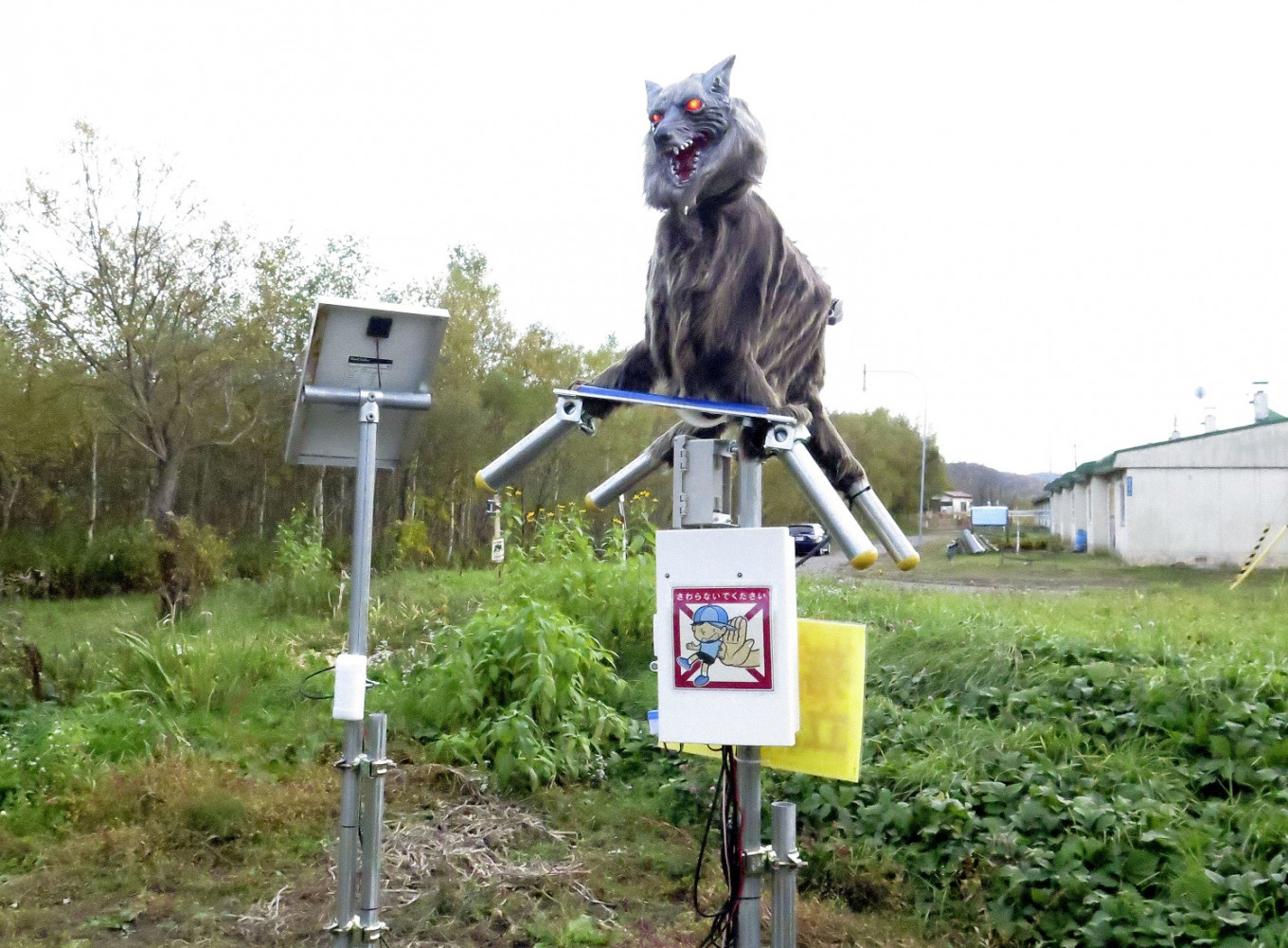Popular Reads
Top Results
Can't find what you're looking for?
View all search resultsPopular Reads
Top Results
Can't find what you're looking for?
View all search resultsJapanese town deploys 'Monster Wolf' robots to deter wild bears
Change text size
Gift Premium Articles
to Anyone
 A robot called Monster Wolf, equipped with sensors that can detect bears or vermin, is installed in an effort to scare away bears that have become an increasingly dangerous nuisance in the countryside, in Takikawa on Japan's northernmost main island of Hokkaido, in this photo taken by Kyodo on October 21, 2020. (Kyodo/via REUTERS)
A robot called Monster Wolf, equipped with sensors that can detect bears or vermin, is installed in an effort to scare away bears that have become an increasingly dangerous nuisance in the countryside, in Takikawa on Japan's northernmost main island of Hokkaido, in this photo taken by Kyodo on October 21, 2020. (Kyodo/via REUTERS)
A
Japanese town has deployed robot wolves in an effort to scare away bears that have become an increasingly dangerous nuisance in the countryside.
The town of Takikawa on the northern island of Hokkaido purchased and installed a pair of the robots after bears were found roaming neighborhoods in September. City officials said there have been no bear encounters since.
Bear sightings are at a five-year high, mostly in rural areas in western and northern Japan, national broadcaster NHK has reported. There have been dozens of attacks so far in 2020, two of them fatal, prompting the government to convene an emergency meeting last month to address the threat they pose.
The so-called Monster Wolf robot consists of a shaggy body on four legs, a blond mane and fierce, glowing-red eyes. When its motion detectors are activated, it moves its head, flashes lights and emits 60 different sounds ranging from wolfish howling to machinery noises.
Read also: The robot dolphin that could replace captive animals at theme parks one day
Machinery maker Ohta Seiki has sold about 70 units of the robot since 2018.
The real Japanese wolf roamed the central and northern islands of the country before being hunted to extinction more than a century ago.
Takikawa city officials said that bears become more active and dangerous as they search for food before going into hibernation in late November. A decrease of acorns and nuts in the wild this year may have driven the animals to venture closer to towns in search of sustenance, according to local media.










